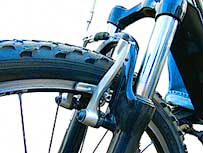 |
|
|
|
|
A driver's or cycle rider's reaction time can be affected negatively by many things but two that can easily be remedied are
|
![]() Causing death by careless driving when under the influence of drink or drugs carries a maximum penalty of 14 years in prison, a minimum 2 year driving ban and a requirement to pass an extended driving test before being able to drive legally again. But simply being found unfit to drive through drink or drugs carries only a maximum 6 month jail sentence. Is this fair when any drunken driver is a potential killer?
Causing death by careless driving when under the influence of drink or drugs carries a maximum penalty of 14 years in prison, a minimum 2 year driving ban and a requirement to pass an extended driving test before being able to drive legally again. But simply being found unfit to drive through drink or drugs carries only a maximum 6 month jail sentence. Is this fair when any drunken driver is a potential killer?
ETHICAL ISSUES INVOLVED
A date to remember
The third Sunday of November each year is the
World Day of Rememberance for Road Traffic Victims
Started by RoadPeace the UK National Charity for road traffic victims





What's your opinion?
Average rating




Not yet rated